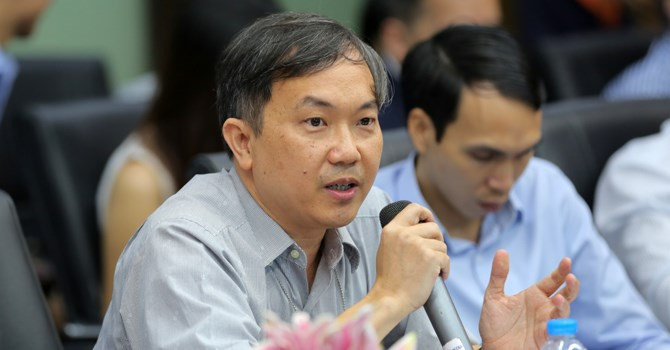Vietnam turns semiconductor vision into action
The global semiconductor industry is being reshaped by geopolitical tensions, shifting supply chains, and the surge of digital technologies.




Before an ever-rising pressure of duty at 0% on completely built cars imported from ASEAN nations, which is scheduled to be applicable in next year, many local automobile firms are launching a series of price reduction strategies on locally produced products. TheLEADER's reporter Vu Long interviewed Mr. Pham Anh Tuan, head of the Vietnam Automobile Manufacturers' Association (VAMA)'s Policy Subcommittee on a scenario for Vietnam's automobile industry.

What is your comment on the Vietnam's auto industry panorama?
Mr Pham Anh Tuan: Vietnam automobile market is very potential thanks to big population and increasing income.
- However, due to small auto market at the moment, Vietnam automobile industry is facing with severe competition from imported CBU vehicles with 0% import duty from 2018 that threat a survival of local industry
The reduction of import tax on CBU from ASEAN nations at 0% by 2018, together with swings of other tax and fees, what are challenges and difficulties on local automobile industry and local automobile manufacturers and assemblers?
Mr Pham Anh Tuan: We need stable auto policy for steady growth of auto market that will help attract more investment to local auto industry
What are your recommendations on role of the government, support of policies whilst still guaranteeing fairness in the market economy and global integration?
Mr Pham Anh Tuan: Due to Vietnam opens the market when market is still small, Government needs to support local industry to keep local production after 2018. That is acceptable from WTO rules.
Do you think that local automobile manufacturers will adjust their strategies to import completely built cars for domestic consumption other than locally produced and assembled ones as presently?
Mr Pham Anh Tuan: Each company will decide their strategy in coming years to sever customer’s demand and in accordance with Government policy.
Do you think Vietnam remains a pivotal market for auto consumption for the time being? To build a sustainable auto industry, what to do now from enterprises and the government?
Mr. Pham Anh Tuan: Auto makers need to maintain local production after 2018 and make preparation for future market expansion, especially cost reduction and quality enhancement.
Government needs to keep stable policy for steady growth of the market volume as well as to promote local production and supporting industry development. Particularly: Reduce import duty for CKD parts to 0% from 2018 to help local makers to reduce production cost; Have production support scheme to help local makers to maintain production when market is not big enough; and
Together with market and production volume increase in coming years, Government support local automakers, suppliers to enhance localization step by step in order to reduce production cost and improve competitiveness versus imported CBU vehicles.
The global semiconductor industry is being reshaped by geopolitical tensions, shifting supply chains, and the surge of digital technologies.
The change in APA approval authority is expected to shorten processing time and enhance business proactiveness in international tax negotiations.
As hybrid cloud systems grow more complex, Vietnamese enterprises are struggling to detect cybersecurity threats moving laterally within their own networks.
The submission of the draft resolution on Vietnam’s international financial center to the National Assembly heralds a new developmental era for the country.
More than just running a 5-star resort, Kristian Petersen is redefining the art of hospitality with a humane and sustainable leadership philosophy.
For Tyna Huynh, co-founder of Drinkizz, organic is not just a food choice but a way of life that fosters a deep connection between people, nature and community.